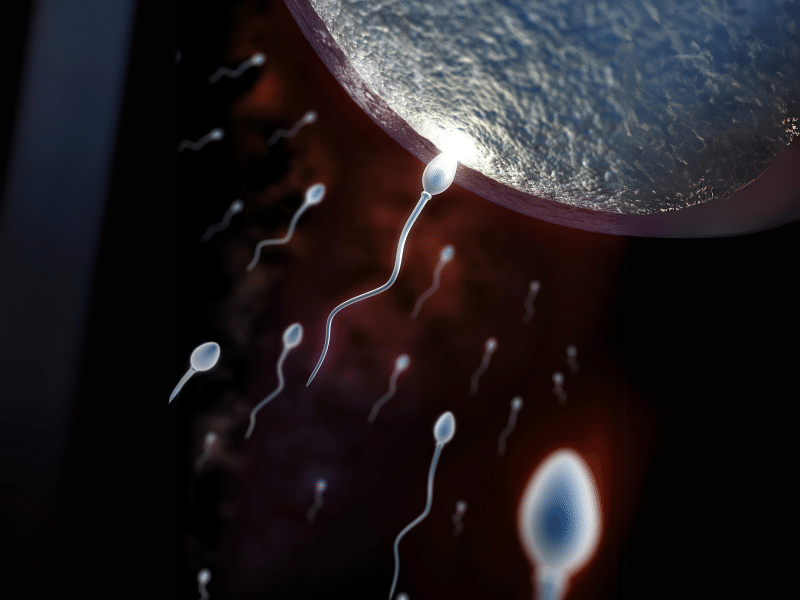In the realm of reproductive health, advancements in technology continually push the boundaries of what’s possible. One such innovation making waves is Teknologjia e cipeve të spermas. This groundbreaking approach offers new insights into male fertility, diagnosis, and treatment, revolutionizing the field of reproductive medicine.
What is Sperm Chip Technology?
Sperm chip technology refers to a cutting-edge approach in the field of assisted reproductive technology that utilizes microfluidic devices, often called “sperm chips,” to analyze and manipulate sperm cells at a microscale level. These microfluidic devices are designed with intricate channels and chambers that allow for the precise assessment of sperm parameters such as motility, morphology, and DNA integrity. By providing high-resolution imaging and real-time monitoring capabilities, sperm chip technology enables clinicians to select the healthiest sperm for use in fertility treatments such as in vitro fertilization (IVF) and intracytoplasmic sperm injection (ICSI). This technology holds promise in revolutionizing fertility solutions by offering new insights into sperm quality and function, ultimately enhancing the chances of successful conception for couples facing infertility.
How It Works
The process begins with the collection of a sperm sample, typically through ejaculation or testicular biopsy. The sample is then loaded onto the Sperm Chip, where it undergoes a series of meticulously controlled steps.
- Sample Preparation: The sperm sample is processed to remove debris, dead sperm, and other contaminants, ensuring that only viable sperm are analyzed.
- Microfluidic Analysis: The prepared sample is introduced into the microfluidic channels of the Sperm Chip. These channels are engineered to mimic the natural female reproductive tract, allowing sperm to swim freely and interact with specific biomolecules or substrates.
- Evaluation of Sperm Parameters: As the sperm traverse the microfluidic channels, various parameters such as motility, morphology, DNA integrity, and membrane integrity are assessed in real-time. High-resolution imaging techniques and biochemical assays enable detailed characterization of individual sperm cells.
Key Features and Benefits
- High Precision Analysis: Sperm chips provide a platform for high-resolution analysis of sperm parameters, allowing clinicians to assess sperm quality with unprecedented accuracy.
- Real-Time Monitoring: These microfluidic devices enable real-time monitoring of sperm behavior, including motility patterns and interactions with the female reproductive tract environment.
- Individualized Treatment: By gaining insights into the specific characteristics of a patient’s sperm, clinicians can tailor fertility treatments such as in vitro fertilization (IVF) or intracytoplasmic sperm injection (ICSI) to optimize outcomes.
- Reduced Sample Size: Sperm chips require smaller sample volumes compared to conventional methods, minimizing discomfort for patients and conserving precious sperm samples for future use.
Applications in Reproductive Medicine
Sperm Chip Technology finds applications across various areas of reproductive medicine, including
- Male Infertility Diagnosis: Assessing sperm quality and identifying potential causes of male infertility.
- Assisted Reproduction: Selecting the healthiest sperm for use in ART procedures like IVF and ICSI to improve pregnancy rates.
- Research and Development: Advancing our understanding of sperm physiology and pathophysiology to develop novel fertility treatments.
Who Can Benefit?
This innovative selection technique utilizing chips is recommended for individuals facing the following challenges
- Sperm samples exhibiting high levels of DNA fragmentation in both single and double strands.
- Previous unsuccessful IVF or Egg Donation cycles characterized by poor or slow embryo development.
- History of recurrent miscarriages.
- Experience of previous implantation failures.
Moreover, this selection method can be applied to any type of sperm sample, as it effectively reduces DNA fragmentation, mitigates damage from oxidoreactive radicals, and selects sperm with superior morphology and motility.
Challenges and Future Directions
While Sperm Chip Technology holds immense promise, challenges such as standardization of protocols and cost-effectiveness need to be addressed to facilitate its widespread adoption. Additionally, ongoing research aims to enhance the capabilities of sperm chips, including the integration of artificial intelligence for automated sperm analysis and sorting.
Sperm Chip Technology represents a significant advancement in the field of reproductive medicine, offering a sophisticated tool for assessing sperm quality and guiding personalized fertility treatments. As research continues to progress, we anticipate further refinement of this technology, ultimately empowering clinicians and couples on their journey towards achieving parenthood.


